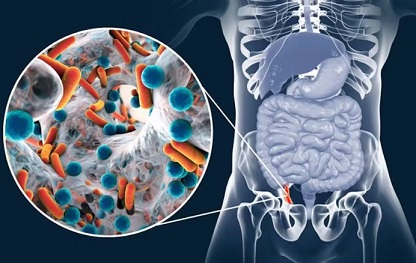Removal Of Appendix Associated With Lower Risk Of Developing Certain Types Of Colorectal Cancers!
Nikhil Prasad Fact checked by:Thailand Medical News Team May 09, 2024 1 year, 7 months, 4 weeks, 18 hours, 29 minutes ago
Cancer News: The appendix, long regarded as a vestigial organ with minimal or no significance, has recently come under scrutiny for its potential roles in the human body, particularly in the context of the immune system and gut microbiome.
 Removal Of Appendix Associated With Lower Risk Of Developing Certain Types Of Colorectal Cancers
Removal Of Appendix Associated With Lower Risk Of Developing Certain Types Of Colorectal Cancers
While appendicitis necessitates surgical removal of the appendix (appendectomy), questions have persisted about the long-term impacts of this procedure on overall health.
A recent groundbreaking study conducted by researchers from Brigham and Women's Hospital and Harvard Medical School, Boston-USA that is covered in this
Cancer News report sheds illuminating insights on a fascinating aspect of appendectomy - the potential link between its removal and the reduced risk of developing a certain subtype of colorectal cancer.
Understanding Colorectal Cancer and the Role of Fusobacterium nucleatum
Colorectal cancer stands as one of the most prevalent and concerning malignancies globally, influenced by a myriad of factors that contribute to its development and progression. Among these factors, the composition of the gut microbiota has emerged as an area of significant interest. One bacterium that has captured researchers' attention is Fusobacterium nucleatum, known for its potential role as an oncogenic bacterium implicated in promoting tumor growth within the colon.
Studies have suggested that Fusobacterium nucleatum may play a crucial role in colorectal carcinogenesis, making it a focal point in understanding the dynamics between gut microbiota and cancer development.
The Study's Approach: Investigating Appendectomy and Colorectal Cancer Risk
The study conducted at Brigham and Women's Hospital adopted a meticulous approach to examine the relationship between appendectomy history and colorectal cancer incidence. Leveraging data from two renowned prospective cohort studies, namely the Nurses' Health Study and the Health Professionals Follow-up Study, the research team embarked on a comprehensive analysis encompassing over 139,000 participants and millions of person-years of follow-up.
Results Unveiled: Appendectomy's Impact on Colorectal Cancer Risk
The study's findings unveiled intriguing insights into the association between appendectomy and colorectal cancer risk. Overall, participants with a history of appendectomy did not exhibit a significantly increased or decreased risk of developing colorectal cancer compared to those without such history. However, when delving deeper into specific subtypes of colorectal cancer based on the presence of Fusobacterium nucleatum, a notable difference emerged.
A Shield Against Fusobacterium nucleatum-Positive Colorectal Cancer
Among participants who had undergone an appendectomy, there was a striking 47% lower risk of developing Fusobacterium
nucleatum-positive colorectal cancer compared to individuals without a history of appendectomy. This observation hints at a potential protective effect conferred by appendectomy against this specific subtype of colorectal cancer, which is characterized by the presence of a likely tumor-promoting bacterium.
Addressing Limitations and Charting Future Directions
While the study's findings offer valuable insights, it's essential to acknowledge certain limitations. The study primarily included participants of white and non-Hispanic descent, which may limit the generalizability of the findings to broader demographics. Additionally, the study focused specifically on Fusobacterium nucleatum and did not explore the potential impacts of appendectomy on other pathogenic bacteria associated with colorectal cancer.
Moving forward, there's a clear need for further research to elucidate the broader impacts of appendectomy on gut microbiota composition, immune response modulation, and long-term health outcomes. Understanding how appendectomy influences these intricate systems can pave the way for more personalized approaches to colorectal cancer prevention and treatment, tailored to individual microbiome profiles and surgical histories.
Implications for Clinical Practice and Public Health Strategies
The implications of these findings extend beyond the realms of research, reaching into clinical practice and public health strategies. While the study hints at a potential benefit of appendectomy in lowering the risk of Fusobacterium nucleatum-positive colorectal cancer, it's crucial to approach this information with nuance. Appendectomy remains a surgical procedure with its own set of risks and considerations, and its potential impacts on immune function and microbial balance necessitate careful evaluation.
As we delve deeper into the complexities of the gut microbiome and its interactions with human health, a holistic approach is imperative. This includes not only considering the immediate outcomes of surgical interventions like appendectomy but also delving into the long-term ramifications on immune function, microbial ecology, and disease susceptibility.
Conclusion: Illuminating the Complexities of Appendectomy and Colorectal Cancer
In conclusion, the study conducted at Brigham and Women's Hospital offers a significant contribution to our understanding of the intricate interplay between appendectomy, gut microbiota dynamics, and colorectal cancer risk. While highlighting a potential protective effect against Fusobacterium nucleatum-positive colorectal cancer, the study underscores the need for ongoing research and nuanced considerations in clinical decision-making.
As we strive towards more personalized and precise healthcare interventions, incorporating insights from studies like this one can guide us in devising strategies that optimize health outcomes while minimizing risks. By delving into the multifaceted roles of organs like the appendix and their interactions with microbial communities, we inch closer to a deeper understanding of human health and disease prevention.
The study findings were published in the peer reviewed journal: Annals Of Surgery.
https://journals.lww.com/annalsofsurgery/abstract/9900/appendectomy_and_long_term_colorectal_cancer.870.aspx
For the latest
COVID-19 News, keep on logging to Thailand Medical News.
Read Also:
https://www.thailandmedical.news/news/mitochondrial-respiratory-chain-component-ndufa4-identified-as-potential-therapeutic-target-for-gastrointestinal-cancer
https://www.thailandmedical.news/news/butyrate-s-ability-to-inhibit-colonic-cancer-is-dependent-on-cell-type-specific-and-is-also-apoptosis-dependent
https://www.thailandmedical.news/news/herbs-and-phytochemicals-essential-oils-from-calocedrus-formosana-have-anticancer-properties-against-colon-cancer-cells-by-targeting-sirt1
https://www.thailandmedical.news/news/ai-in-medicine-revolutionizing-colorectal-cancer-screening:-the-impact-of-ai-assisted-colonoscopy-on-adenoma-detection
https://www.thailandmedical.news/news/health-news-largest-international-study-to-date,-reveals-that-folate-from-diet-including-leafy-vegetables-can-decrease-risk-of-colorectal-cancer
https://www.thailandmedical.news/news/covid-19-news-sars-cov-2-is-likely-an-oncogenic-virus-that-will-cause-lung,-colorectal,-oral,-pancreatic-and-breast-cancers-in-the-long-term
https://www.thailandmedical.news/news/cancer-news-australian-scientists-discover-that-tcf-1-from-gut-microbiome-prevents-gamma-delta-t-cells-in-gut-from-fighting-off-colorectal-cancer
https://www.thailandmedical.news/news/four-symptoms-that-are-red-flags-for-early-onset-colorectal-cancer
https://www.thailandmedical.news/news/more-millennials-and-gen-zers-developing-colorectal-cancer-and-dying-young
https://www.thailandmedical.news/news/breaking-study-shockingly-finds-that-all-whose-mothers-took-the-drug-bendectin-in-the-1960s-and-1970s-are-at-risk-of-colorectal-cancer
https://www.thailandmedical.news/news/study-finds-that-ultra-processed-foods-increases-the-risk-of-colorectal-cancer-in-men-by-29-percent
https://www.thailandmedical.news/news/post-covid-19-individuals-advised-to-take-probiotics-as-study-shows-sars-cov-2-induced-gut-microbiome-dysbiosis-increases-risk-for-colorectal-cancer
https://www.thailandmedical.news/news/breaking-new-international-study-warns-that-sars-cov-2-infections-will-lead-to-cancers-especially-colorectal-cancers-due-to-disruption-in-autophagy
https://www.thailandmedical.news/news/researchers-from-university-of-toronto-discover-new-therapeutic-target-for-bowel-colorectal-cancer-
https://www.thailandmedical.news/news/yoghurt-prevents-adenomas-in-men,-lowering-risk-of-colonic-cancer-
